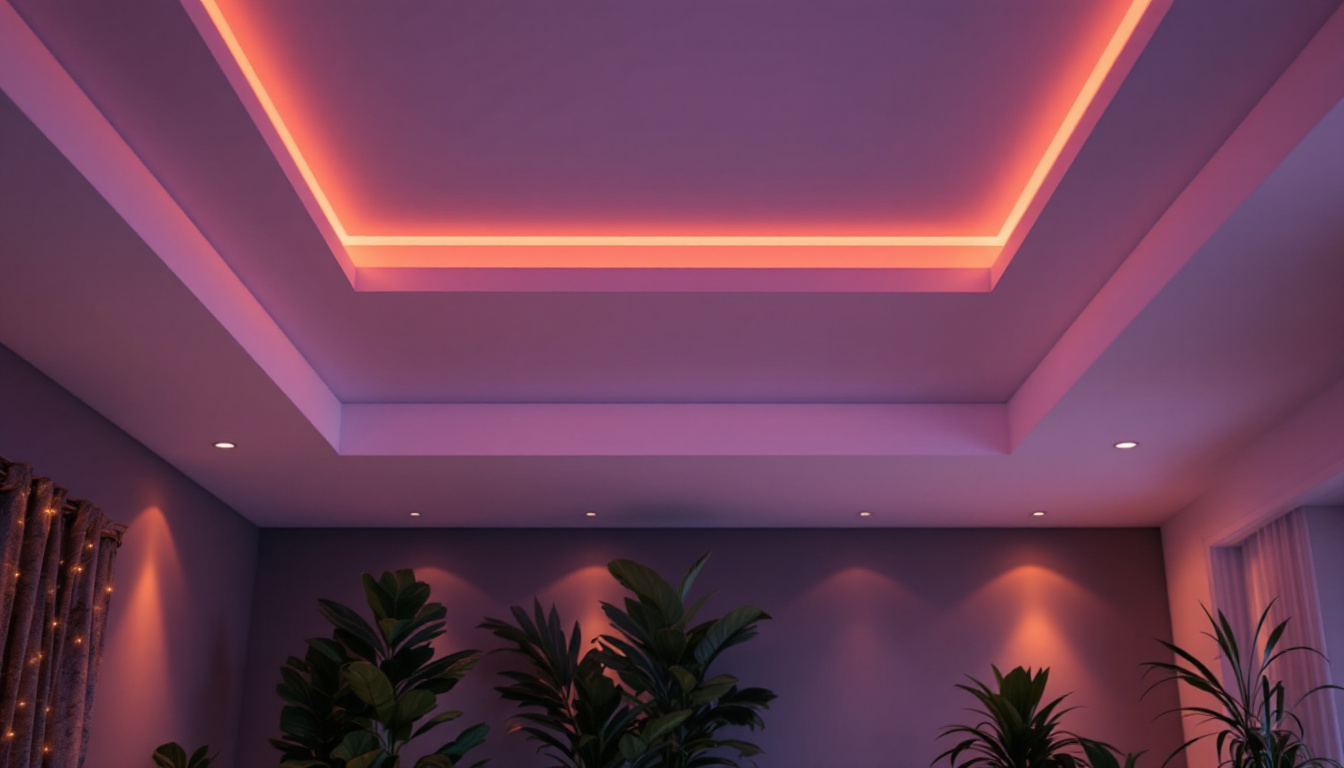
In the ever-evolving world of lighting design and installation, contractors play a pivotal role in ensuring that spaces are not only illuminated but also aesthetically pleasing and functional. This guide aims to provide lighting contractors with essential insights into the purchasing process, helping them make informed decisions that enhance their projects and satisfy their clients.
Before diving into the purchasing process, it is crucial for lighting contractors to have a solid grasp of the fundamentals of lighting. This knowledge serves as the foundation for selecting the right products for any project. A thorough understanding of lighting principles not only aids in making informed decisions but also empowers contractors to communicate effectively with clients about their needs and preferences.
Lighting design is not merely about choosing bulbs or fixtures; it involves understanding how light interacts with space. Effective lighting design considers various factors, including the purpose of the space, the mood to be created, and the architectural features that need highlighting. For example, in a restaurant setting, the lighting must create an inviting ambiance that encourages diners to linger, while in a retail environment, it should enhance product visibility and encourage purchases.
By integrating these elements, contractors can create environments that enhance functionality while also providing aesthetic appeal. Understanding the principles of light distribution, color temperature, and intensity is essential to achieving a balanced and effective lighting design. Additionally, the use of smart lighting technology can further elevate the design process, allowing for dynamic adjustments based on time of day or specific events, thus enhancing the overall user experience.
Lighting can be broadly categorized into three types: ambient, task, and accent lighting. Ambient lighting provides overall illumination, task lighting focuses on specific areas for activities, and accent lighting highlights particular features or objects. Each type plays a vital role in creating a cohesive lighting strategy that meets the diverse needs of different environments.
Contractors should be familiar with these types to effectively meet the needs of their clients. For instance, a well-lit office space may require a combination of ambient and task lighting, while a gallery may benefit from accent lighting to showcase artwork. Moreover, the integration of dimmers and controls can allow for flexibility in lighting levels, enabling spaces to transition seamlessly from day to night or from work to relaxation modes. Understanding how to blend these types of lighting effectively can transform a mundane area into a vibrant and functional space, ultimately leading to greater client satisfaction and project success.
Once a contractor has a firm understanding of lighting fundamentals, the next step is to evaluate the products available in the market. The right products can significantly impact the quality of a lighting installation.
In today’s environmentally conscious market, energy efficiency is a critical consideration. LED lighting has emerged as a popular choice due to its longevity and lower energy consumption compared to traditional incandescent bulbs.
Contractors should prioritize products that meet energy efficiency standards and certifications. This not only benefits the environment but can also lead to cost savings for clients in the long run. Additionally, many regions offer incentives for using energy-efficient lighting solutions, which can be an attractive selling point. Furthermore, the shift towards smart lighting systems, which allow for automated control and scheduling, can enhance energy savings even further. By integrating sensors and timers, these systems can adjust lighting based on occupancy and natural light availability, making them a smart investment for both residential and commercial projects.
When selecting lighting products, quality and durability should never be compromised. High-quality fixtures and bulbs not only perform better but also have a longer lifespan, reducing the need for frequent replacements.
Contractors should look for reputable manufacturers known for their commitment to quality. Reading reviews, seeking recommendations, and even visiting showrooms can provide valuable insights into product performance and reliability. It’s also important to consider the materials used in the construction of lighting fixtures; for instance, products made from corrosion-resistant materials are ideal for outdoor applications, where exposure to the elements can lead to premature failure. Additionally, understanding the warranty and support offered by manufacturers can provide peace of mind, ensuring that contractors can address any issues that may arise post-installation. Investing time in evaluating these aspects will not only enhance the overall project quality but also build trust with clients who expect durability and performance from their lighting solutions.
A successful lighting contractor understands the importance of building strong relationships with suppliers. These partnerships can lead to better pricing, access to exclusive products, and valuable support throughout the project lifecycle.
When selecting suppliers, contractors should consider factors such as product range, pricing, and customer service. A supplier that offers a diverse selection of lighting products can be invaluable, especially when working on projects with unique requirements.
Additionally, responsive customer service can make a significant difference when issues arise. Contractors should seek suppliers who are willing to provide technical support and guidance, ensuring that any challenges can be addressed promptly.
Negotiation is an essential skill for contractors when dealing with suppliers. Understanding market prices and being prepared to discuss terms can lead to more favorable agreements.
Contractors should not hesitate to inquire about bulk purchasing discounts, payment terms, and warranty options. Establishing a good rapport with suppliers can often result in better deals and enhanced service, ultimately benefiting the contractor’s bottom line.
The lighting industry is constantly evolving, with new technologies and design trends emerging regularly. Staying informed about these changes is crucial for contractors who want to remain competitive and offer the best solutions to their clients.
Subscribing to industry publications, attending trade shows, and participating in professional organizations can provide contractors with valuable insights into the latest trends and innovations in lighting.
These resources often feature articles, case studies, and product reviews that can help contractors make informed decisions about the products they choose to use. Additionally, networking with other professionals in the field can lead to the sharing of ideas and best practices.
Advancements in lighting technology, such as smart lighting systems and automated controls, are transforming the way spaces are illuminated. Contractors should be open to exploring these innovations and understanding how they can enhance their projects.
Smart lighting not only offers convenience but can also improve energy efficiency and user experience. By integrating these technologies into their offerings, contractors can position themselves as forward-thinking professionals in the industry.
Ultimately, the success of any lighting project hinges on understanding and meeting client needs. Effective communication and a thorough understanding of client expectations are essential for delivering satisfactory results.
Before beginning a project, conducting a thorough consultation with the client is vital. This process should involve discussing their vision, preferences, and any specific requirements they may have.
By asking the right questions and actively listening to client feedback, contractors can ensure that the final design aligns with the client’s goals. This collaborative approach not only fosters trust but can also lead to repeat business and referrals.
Clients often appreciate having options to choose from when it comes to lighting design. Providing a range of design concepts can help clients visualize the possibilities and make informed decisions.
Contractors should consider creating mood boards or digital renderings to illustrate different lighting scenarios. This visual representation can be a powerful tool in helping clients understand the impact of various lighting choices on their space.
Once the products have been selected and the design finalized, the next step is executing the installation. This phase requires careful planning and attention to detail to ensure a successful outcome.
Effective project management is essential during the installation phase. Contractors should develop a clear timeline, outline responsibilities, and ensure that all team members are aligned with the project goals.
Regular communication with clients and team members can help address any issues that may arise during installation. By maintaining transparency and providing updates, contractors can build trust and confidence with their clients.
Quality control is a critical aspect of the installation process. Contractors should conduct regular checks to ensure that all products are installed correctly and functioning as intended.
Testing the lighting setup before the final walkthrough with the client can help identify any issues that need to be addressed. This proactive approach not only enhances the overall quality of the installation but also demonstrates professionalism and commitment to excellence.
The relationship between a contractor and their client does not end once the installation is complete. Providing post-installation support is essential for ensuring client satisfaction and fostering long-term relationships.
Many lighting systems require ongoing maintenance to ensure optimal performance. Contractors should consider offering maintenance services as part of their value proposition.
By providing clients with information on how to care for their lighting systems and offering regular maintenance checks, contractors can help extend the lifespan of the products and enhance their performance.
After the project is completed, gathering feedback from clients can provide valuable insights into their experience. This feedback can help contractors identify areas for improvement and refine their processes for future projects.
Additionally, positive testimonials can be a powerful marketing tool, showcasing the contractor’s expertise and commitment to client satisfaction.
The journey of a lighting contractor involves much more than simply purchasing products. It requires a deep understanding of lighting design, effective communication with clients, and strong relationships with suppliers. By embracing these principles, contractors can elevate their projects and deliver exceptional results.
As the lighting industry continues to evolve, staying informed about trends and technologies will be crucial for maintaining a competitive edge. Ultimately, the success of a lighting contractor lies in their ability to blend creativity with technical expertise, ensuring that every project not only meets but exceeds client expectations.
Ready to take your lighting projects to the next level? At LumenWholesale, we provide lighting contractors like you with the highest quality, spec-grade lighting products at unbeatable wholesale prices. Say goodbye to local distributor markups and hello to our extensive selection that meets rigorous industry standards. With free shipping on bulk orders, you can trust that you’re getting premium lighting solutions at the best value — no hidden fees, no compromises. Elevate your lighting installations with the perfect blend of quality, affordability, and convenience. Discover wholesale lighting at the best value today and brighten your client’s world with LumenWholesale.

Discover how implementing a 4-way toggle switch can revolutionize your lighting projects and maximize profits.

Discover how understanding light brightness measurements can enhance your projects and increase profitability.

Discover why 6-inch can lights are the versatile solution your lighting project needs.

Discover how lighting contractors can enhance their profitability with strategic insights and practical tips in our comprehensive guide on single receptacles.